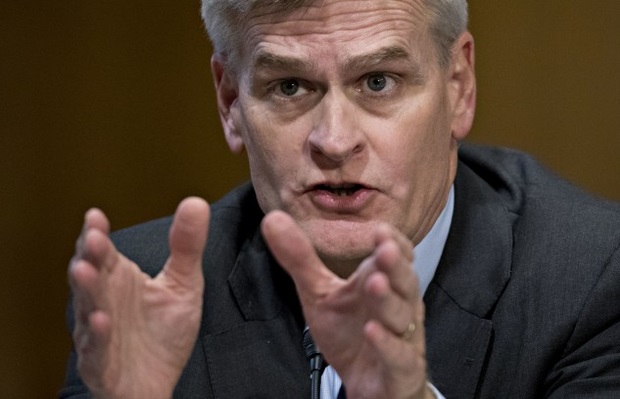Surprise Medical Bills May Be Curbed as Lawmakers Seek Deal
- Cassidy says bipartisan legislation envisioned for 2019
- GOP senator sees ‘bad apples’ among insurers, provider
Republicans and Democrats are inching toward agreement on one health-care issue: ending surprise medical bills.
Staff for lawmakers on both sides of the aisle have been working on legislation to prevent instances where people are left with costly, unforeseen medical expenses despite having insurance coverage, with an eye on introducing a bill early in 2019, Sen. Bill Cassidy (R-La.) said in an interview.
Insurers and hospitals have been fighting over how to solve this issue, with each side blaming the other. Meanwhile, lawmakers are close to finding common ground, Cassidy, a physician who is part of a six-member task force on the problem, said.
“Colleagues are telling me their own stories about family members who have these incredible bills after going to the emergency room,” he said. “Right now patients are bearing the brunt of the lack of agreement and that needs to end.”

Cassidy’s staff is working with aides for Sen. Maggie Hassan (D-N.H.) on a measure to be released early in 2019, he said.
Hassan introduced a bill S. 3592 earlier this year to prohibit providers from charging out-of-network rates for emergency services. Cassidy was part of a group that released a draft bill meant to ensure Americans are required to pay only the cost-sharing amount defined by their health plan, prohibiting health-care providers from charging beyond that amount, for emergency services. This is meant to attack common but often confusing hospital billing practices that can leave some people with high expenses for emergency room visits.
AN INDUSTRY AT ODDS
Insurers and hospitals began to duke it out over proposed legislation to combat surprise billing recently. Both sides said they support legislation to end the practice yet the two are in a war of words over who is to blame.
A coalition of insurers and employers announced a partnership to support legislation that would standardize out-of-network billing. They put much of the blame for surprise billing onto doctors who won’t join their networks.
“When doctors, hospitals, or care specialists choose not to participate in networks—or if they do not meet the standards for inclusion in a network—they charge whatever rates they like,” the coalition, which includes the insurance lobby, the Blue Cross Blue Shield Association and the pro-Obamacare Families USA, said in a statement.
The Federation of American Hospitals and the American Hospital Association shot back at the coalition and blamed “inadequate health plan provider networks.” The heads of the two groups said they, too, support federal legislation, but one focused on closing gaps in coverage.
“Inadequate health plan provider networks that limit patient access to emergency care is one of the root causes of surprise bills,” Federation of American Hospitals President and CEO Chip Kahn and American Hospital Association President and CEO Rick Pollacksaid in a joint statement. “Patients should be confident that they can seek immediate lifesaving care at any hospital.”
Cassidy said he sees “bad apples with both groups” and expects both sides will have to accept some changes they don’t want, particularly when it comes to billing for emergency services.
“That is going to be where everyone is going to have to give a little bit,” Cassidy said.
To contact the reporter on this story: Alex Ruoff in Washington at aruoff@bgov.com
To contact the editors responsible for this story: Paul Hendrie at phendrie@bgov.com; Robin Meszoly at rmeszoly@bgov.com